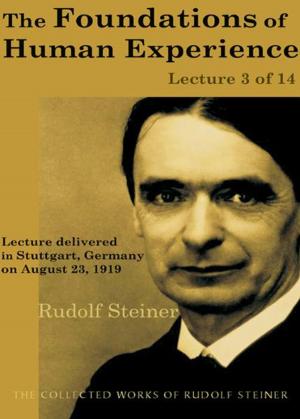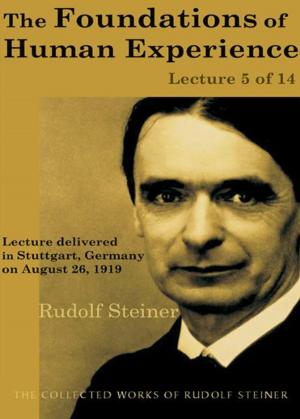The Karma of Vocation
Nonfiction, Reference & Language, Education & Teaching, Educational Theory, Philosophy & Social Aspects| Author: | Rudolf Steiner | ISBN: | 9780880107129 |
| Publisher: | Steinerbooks | Publication: | January 1, 1984 |
| Imprint: | SteinerBooks, Collected Works 172 | Language: | English |
| Author: | Rudolf Steiner |
| ISBN: | 9780880107129 |
| Publisher: | Steinerbooks |
| Publication: | January 1, 1984 |
| Imprint: | SteinerBooks, Collected Works 172 |
| Language: | English |
Usually, motivating ourselves to geth through the demands of daily life is difficult enough; finding the will to excel is even harder. Our occupations can become routine and boring, leading us to to ask: What is the purpose of my work? Is it merely to satisfy the demands of survival, which in turn simply allows me to keep working? Or is it a matter of more disposable income and consumerism? In the end, it can all seem rather pointless. In these remarkable talks, Rudolf Steiner takes us behind the scenes of the routine activities of vocation where we are shown how the combined vocational activity of all humanity affects the higher suprasensory realms. This activity mobilizes forces that lead to future worlds, which is the "karma of vocation." It prepares new worlds in which we will participate. By understanding this deeper aspect of our daily work, we can bring new meaning to the most insignificant activities. In fact, we begin to understand that no human work is insignificant; it all contributes to grand cosmic processes. Such understanding helps us to bring new enthusiasm to our work and lives.
Usually, motivating ourselves to geth through the demands of daily life is difficult enough; finding the will to excel is even harder. Our occupations can become routine and boring, leading us to to ask: What is the purpose of my work? Is it merely to satisfy the demands of survival, which in turn simply allows me to keep working? Or is it a matter of more disposable income and consumerism? In the end, it can all seem rather pointless. In these remarkable talks, Rudolf Steiner takes us behind the scenes of the routine activities of vocation where we are shown how the combined vocational activity of all humanity affects the higher suprasensory realms. This activity mobilizes forces that lead to future worlds, which is the "karma of vocation." It prepares new worlds in which we will participate. By understanding this deeper aspect of our daily work, we can bring new meaning to the most insignificant activities. In fact, we begin to understand that no human work is insignificant; it all contributes to grand cosmic processes. Such understanding helps us to bring new enthusiasm to our work and lives.















